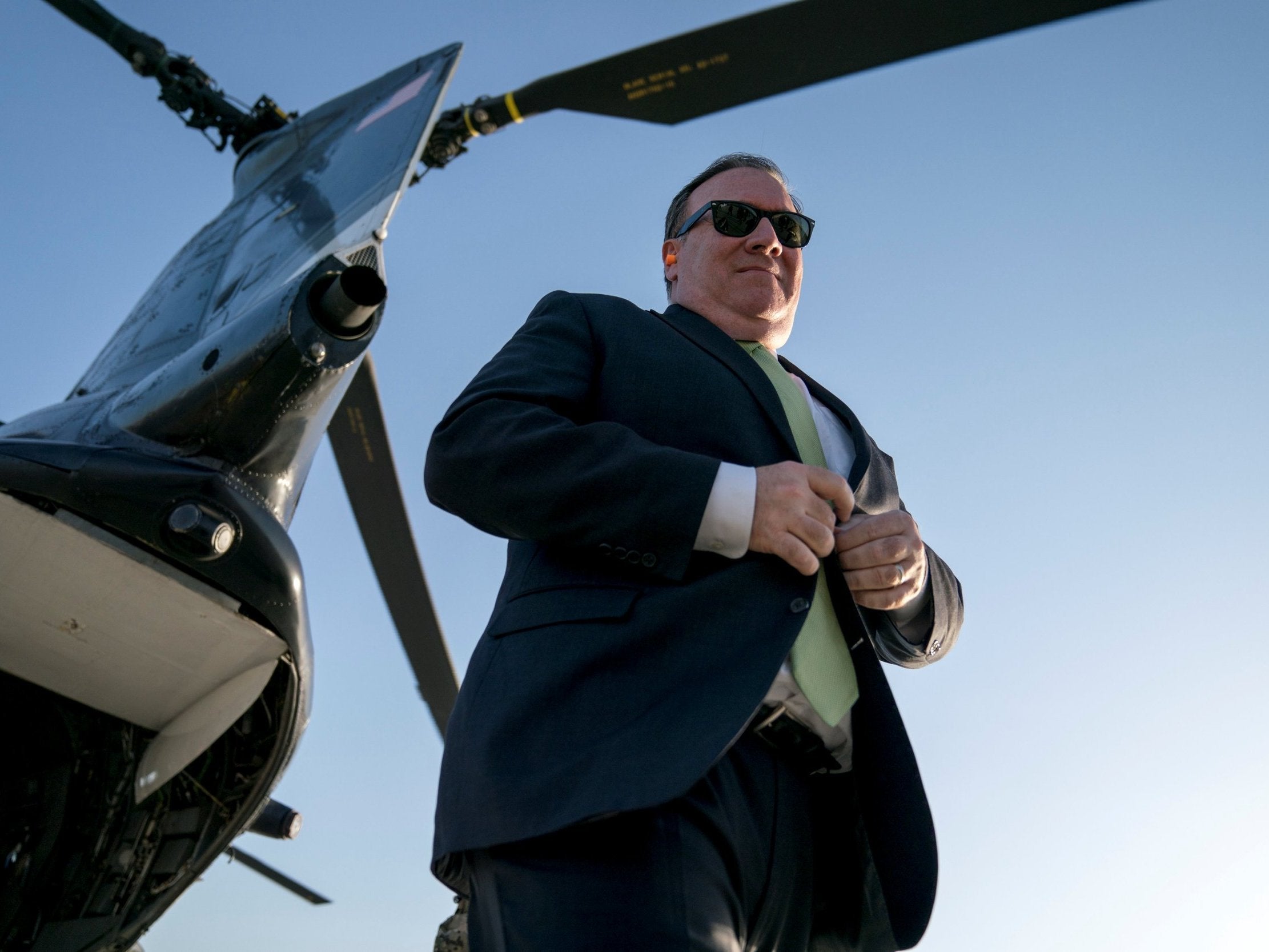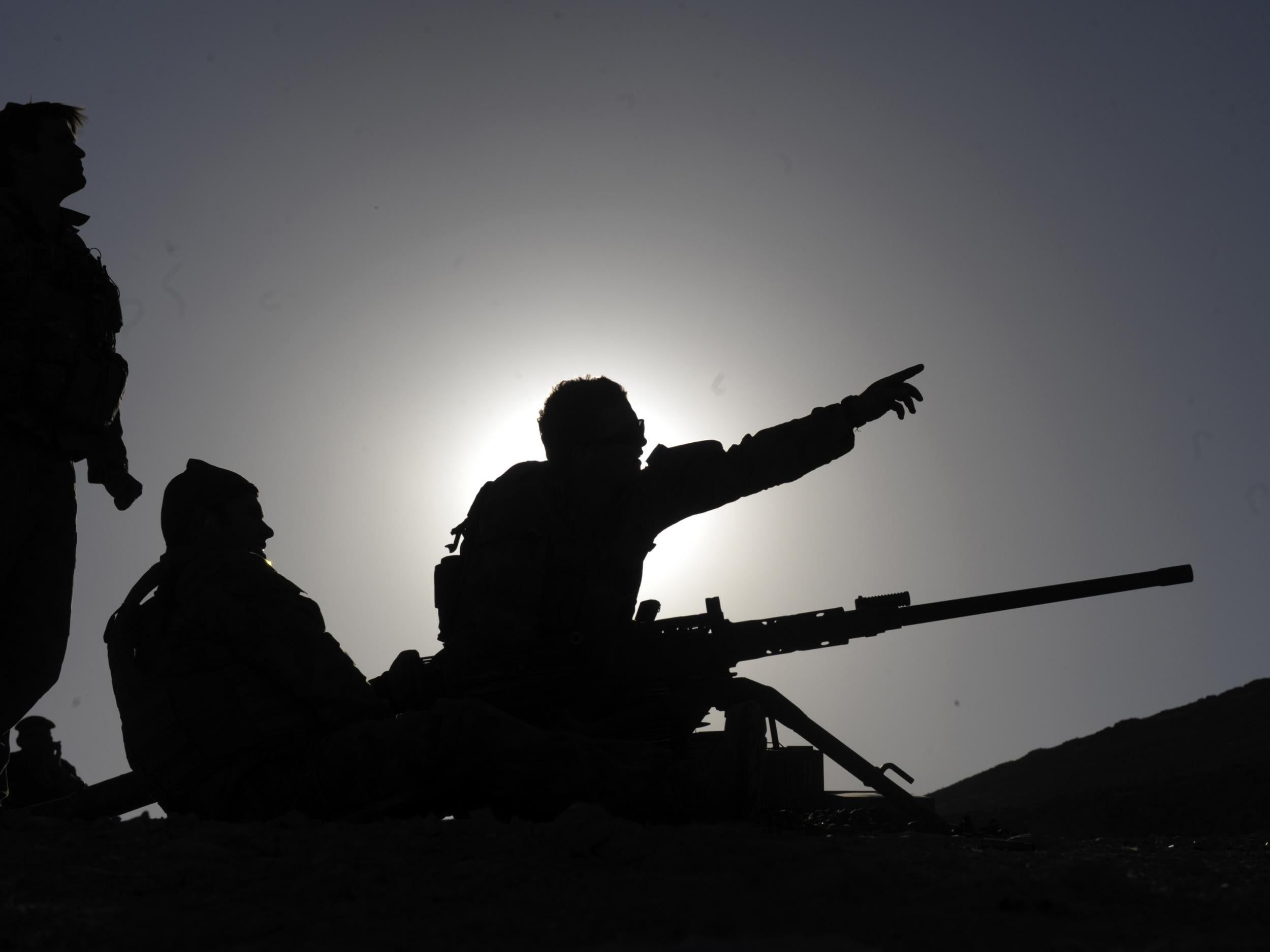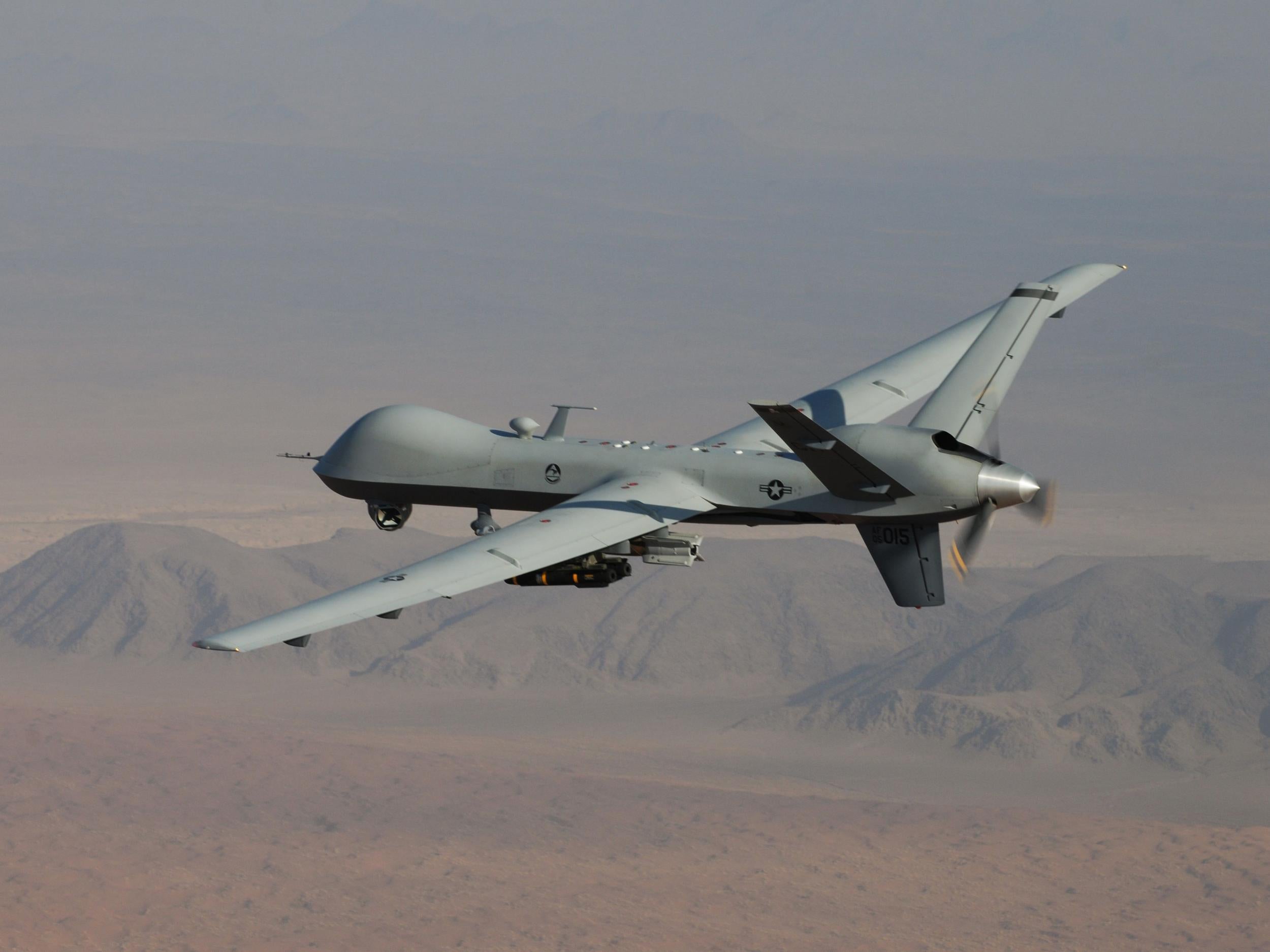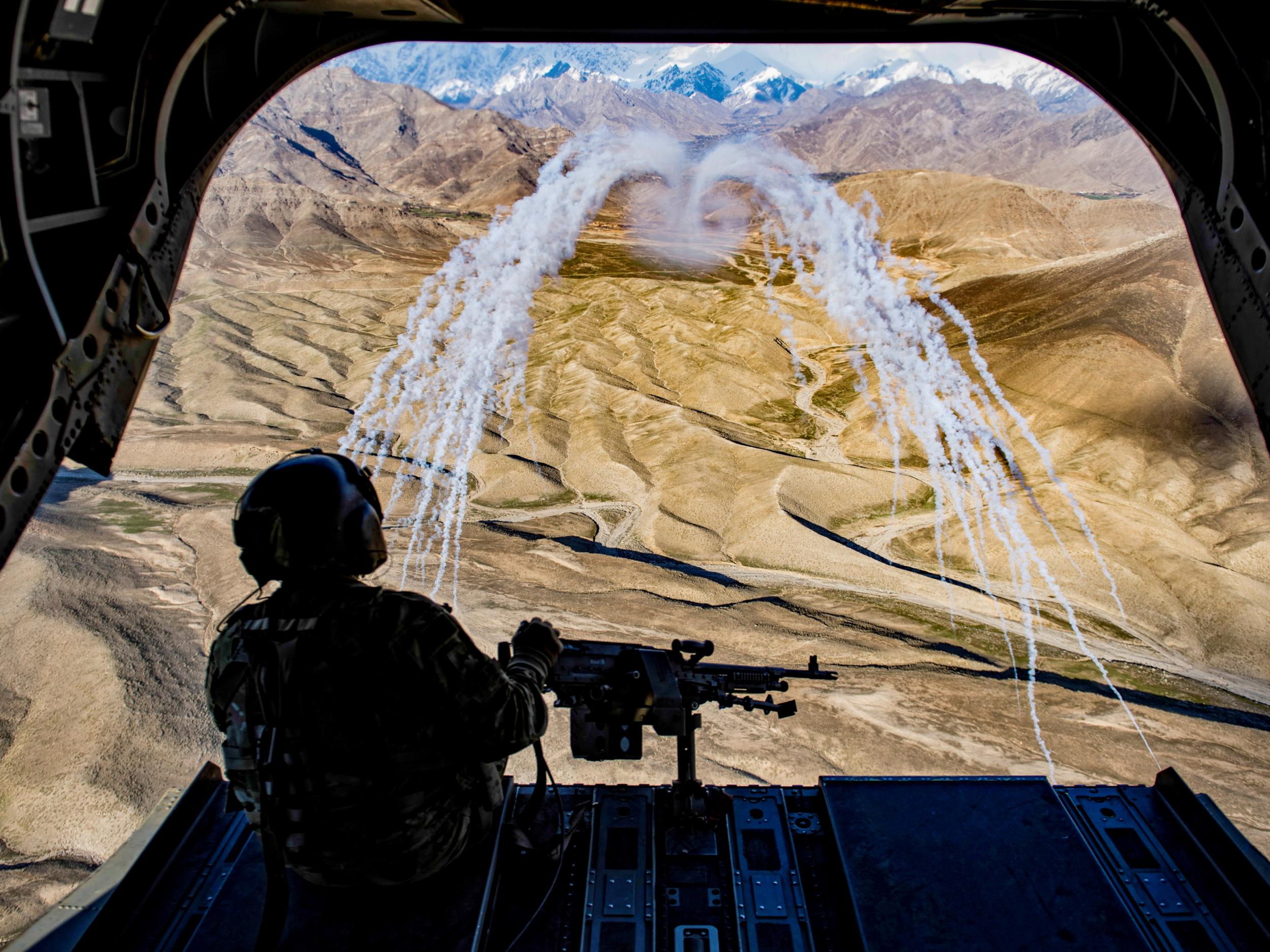Exclusive: Blackwater founder's plan to privatise America’s $76bn, 17-year war in Afghanistan
In a rare interview, Erik Prince speaks in depth about his pitch to Trump and Pompeo to slash costs by shifting military operations to an international team of 'contractors'
Donald Trump is expected to ask European countries at this week’s Nato summit, one of the most crucial and contentious in the history of the alliance, to step up and contribute more troops for the war in Afghanistan.
Other member states, already facing an onslaught from the US president over their shortfalls in defence spending, and facing the threat of funding cuts, are likely to acquiesce. Britain, for example, is expected to double the size of its force to just over 1,200.
But Erik Prince, founder of Blackwater, probably the most well-known private security company in the world, is adamant that increasing troops in Afghanistan is the worst thing the United State’s allies can do.
“It will be reinforcing a strategy which is a failure – something which has not worked, will not work and needlessly cost lives,” he wanted to stress.
The billionaire, who currently heads a private equity firm, has his own plans for turning around the Afghan war – one which he described to The Independent.
“What Mr Trump really should be saying to Nato is that there is no point in sending more troops: they should be sending money instead.
“During his election campaign, Mr Trump rightly condemned America’s wasteful wars abroad, so what is the point in keeping on adding to the numbers in Afghanistan?

“The US administration is spending $76bn a year in Afghanistan – that is much more, I think, than Her Majesty’s Government in the UK is spending on its entire defence budget.
“What I am proposing will cost a fraction of that. It will also save lives of armed forces personnel: American, British, Afghans and other allies.”
What Mr Prince is proposing, in essence, is privatising the war, although he would prefer to call it “rationalising and restructuring”.
It was a strategy he put forward once before to the White House, where it received the backing of Steve Bannon, then Mr Trump’s chief strategist, and his son-in-law Jared Kushner.
But it was rejected by senior members of the administration, with the then national security advisor Lieutenant General HR McMaster the strongest critic, and secretary of state Rex Tillerson and defence secretary general James Mattis also not in favour.
But there have been changes, with the extraordinary churn, in the Trump administration, and the current secretary of state, Mike Pompeo, and national security advisor John Bolton will be much more receptive, Mr Prince believes, to his plan.
General Mattis, he said, agreed with his analysis of the problems in Afghanistan but disagreed with his solution.
The president himself, who has railed repeatedly about the cost of the United State’s military deployed abroad, had shown interest, although Mr Prince, whose sister Betsy DeVos is Mr Trump’s education secretary, is yet to meet him to discuss the matter.
Mr Pompeo maintained in Afghanistan on Monday that Mr Trump’s current strategy was working. The Taliban, he said, can no longer rely on waiting for US forces to pull out.
One of the criticisms of the end of the combat mission by international forces in 2013 was that the decision to withdraw was telegraphed long in advance, enabling the insurgents to bide their time in their camps in Pakistan, and then move back across the border to carry out relentless attacks in a security vacuum.
The backers of the privatisation plan stress that to avoid that happening again, and to follow Mr Trump’s policy of result-based rather than time-based disengagement, leaders in the West will have to commit troops for an indefinite period.
And, in those circumstances, using private security companies will be a much more politically palatable option, avoiding scenes of bodybags coming back home for years to come.
Something like this will raise all kinds of practical and logistical problems as well as huge legal, moral and ethical ones
Mr Prince’s and other such plans may well be assessed, say some US diplomatic sources – and some aspects, if not the whole package, could be utilised in the future.
Others, however, remain dismissive.
“This is something out of Soldier of Fortune [magazine]. Something like this will raise all kinds of practical and logistical problems, as well as huge legal, moral and ethical ones”, a Pentagon official commented.
“The military are not going to back this kind of freewheeling.”

Mr Prince, a former US Navy Seal, calls his programme “a strategic economy of force”.
His suggestion centres on small teams of armed private contractors, not “mercenaries”, largely composed of former members of Western forces, mentoring Afghan troops – living, training and going into battle with them – supported by aircraft flown by contractors with Afghan co-pilots.
“All this has been properly costed: we need 90 aircraft, attack helicopters, transport, medivac. We know about conditions there, 26 of my own helicopters had flown there. We have identified the aircraft, got the serial numbers of those we would need to buy. The DoD [Department of Defence] sent $100m fast-jets to take out $100 opium fields, we won’t be doing anything like that,” he said.
“The Afghan Air Force only began to get trained by the US as late as 2007, and there is a lot to do. In the meantime, they need to get all the support they can get.
“Under our plan, the aircraft will be flown by contractors but the targeting will be done by Afghans, so the final authority for taking action will rest with them.”
It is, nonetheless, a highly controversial proposal, made more so, in many minds, because of the record Mr Prince’s former company attracted in Iraq and Afghanistan.
The most notorious episode was in Baghdad, in 2007, in which 17 civilians were killed by Blackwater guards.
I was reporting from Iraq at the time and got caught up in the prolonged shooting in Nisour Square: it was carnage, an unnerving experience.
Defenders of Blackwater say that a few bad incidents have been used by critics to denigrate the company, ignoring valuable work carried out in highly dangerous places.
Mr Prince will make money from the Afghan project if he is associated with it, but claims the main point is that someone takes it up. Mr Prince, who has sold his interests in the comany since then, holds that figures show the obvious economic advantage of his blueprint.
At present there are 15,000 US troops and around 5,000 from other countries and also, little known, almost 30,000 private contractors in Afghanistan. That is as well as American combat aircraft,
At the height of the ‘surge’ under Barack Obama, the International Security Assistance Force reached a total of 140,000.
Mr Prince first put forward his strategy around a year ago to the White House.

Speaking of its strongest critic, the then national security advisor, Mr Prince said: “McMaster was a three star [general] who wanted to be a four star, and simply would not accept anything like this which was not conventional.
“I heard President Trump read about my plans in the Oval Office and told McMaster that he preferred it to his plans, so perhaps I got off on the wrong foot with McMaster.
“But McMaster was at the time proposing sending 70,000 extra troops to Afghanistan, so obviously he would not have liked what I was suggesting.”
Mr Prince, who now works for the Chinese-owned Frontier Services Group, spoke from Spain, where he was en route to the Democratic Republic of Congo, about a more positive response from Mike Pompeo and how Mr Bolton may react.
“I have spoken to him, he was interested in what I had to say,” he said of Mr Pompeo.
“I have yet to discuss this with John Bolton but, looking at his background, he would not want, I think, to stick with a conventional strategy which is not working. I will certainly be taking this matter further in the next few months”, he said
Far fewer boots on the ground would also help to address the issue of malign interference in Afghanistan from Pakistan, where elements of the military and the secret police (ISI) have sponsored the Taliban and other insurgent groups, according to Mr Prince.
“Despite all the complaints about Pakistani support for the Taliban, and the fact they harboured Osama Bin Laden actually in their military academy, we are still being played by Pakistan.
“At the moment we have to depend on supply lines through Pakistan for 15,000 troops and 30,000 support. We would no longer need that that level of logistical support.
“Supplies can be brought in through Uzbekistan. Then the squeeze can be put on the Pakistani leadership for all the heinous support they have been giving to the Taliban, the Haqqani Network and Daesh [Isis],” he said.
Mr Prince spoke to Mr Pompeo when he was the head of the CIA, before being brought over to the State Department by Mr Trump.
And the CIA, the Mr Prince wanted to point out, along with special operations forces, had played a key part in bringing down the Taliban regime in 2001, using the same kind of warfare he is proposing.
“After 9/11, a handful of CIA and SF defeated the Taliban. The Taliban are not 10 feet tall, they can be beaten with the right tools, the right men.
“And it won’t be just Americans. These mentors could be from Britain, Australia, Canada, South Africa, anybody with a good rugby team,” was his view.
There are other issues which may distract Mr Prince. Special counsel Robert Mueller, investigating whether Donald Trump was the Muscovite candidate for the White House, is looking at Mr Prince’s meeting with a Russian fund manager in the Seychelles.
Mr Prince, who insisted the meeting was purely by chance, said he has “no concern at all” about the probe, and has voluntarily given investigators access to his telephones and computers.
He remains, he said, focused on Afghanistan and wanted to give his project a historical context. There are British elements to that. His suggestion is that there should be a viceroy figure, as it was under the British Raj, who would command policy and budget and report directly to President Trump. This will prevent near constant changes in command and lack of continuity in policies, said Mr Prince.

An example of the mentoring system would be the East India Company, which created its own empire in India. “The East India Company, a small Western group using local resources; the East India Company operated for 200-plus years, they deployed with a model of one mentor to 20 local troops... I am not advocating colonisation, of course, let’s leave aside the politics,” said Mr Prince.
But one cannot really leave aside the politics or history in Afghanistan, and views on the East India Company vary according to the vantage point.
It certainly made a massive amount of money for its shareholders and the British Crown but is viewed in India as a vehicle for brutal exploitation.
Its policies led to a nationwide conflict – one the British call the Indian Mutiny, and the Indian’s label as the First War of Independence, resulting in the British government taking over from the East India Company.
Robert Clive – “Clive of India” – who had vastly extended the company’s territory, was put on trial before parliament back in London for alleged abuse and corruption.
The quasi viceroy had a lonely and violent end to his life: committing suicide by stabbing himself in the throat with a penknife.
Bookmark popover
Removed from bookmarks